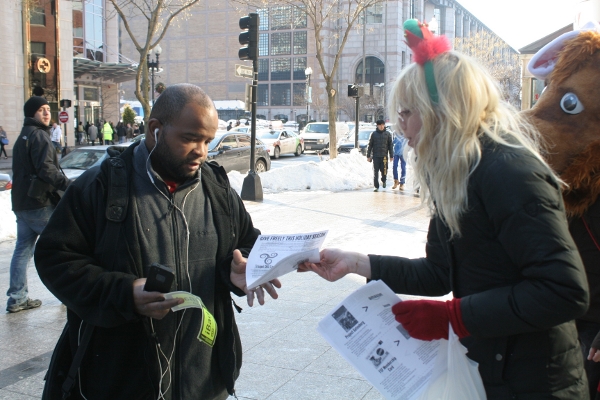The FSF has been warning users of the dangers of the Trans-Pacific
Partnership (TPP) for many years now. The TPP is an agreement
negotiated in secret nominally for the promotion of trade, yet entire
chapters of it are dedicated to implementing restrictions and
regulations on computing and the Internet. In April of 2015, a leaked
draft of the agreement revealed a whole host of problems. From
extensions to the term of copyright, confusing provisions on software
patents, and spreading the worst aspects of the Digital Millennium
Copyright Act's (DMCA) Digital Restrictions Managment (DRM) provisions
beyond the United States, the TPP negotiations were and are an attack
on user freedom. In the U.S. at that time, the battle was to stop
Trade Promotion Authority, which would fast-track passage of TPP in
the U.S. once an accord was reached. We unfortunately lost that
battle, and last month the TPP negotiations ended. On November 5th,
the
secret text of TPP was finally officially released to the public. Because
of Trade Promotion Authority, the time we have left to stop TPP in the
U.S. is extremely limited. For U.S. residents, there are only 90 days
left before this trade agreement locks users in for possibly
decades. For users in other TPP member countries, the time frame is
not much better. The war wages on and the time to act is now.
One big reveal from the final publication was the addition of the
Electronic Commerce chapter, which was not previously leaked. The
chapter contains provisions similar to those found in the Trade in
Services Agreement (TISA) that we wrote about previously. TPP
requires that "No Party shall require the transfer of, or access to,
source code of software owned by a person of another Party, as a
condition for the import, distribution, sale or use of such software,
or of products containing such software, in its territory." While
government procurement is exempted from this rule under TPP ("This
Chapter shall not apply to ... government procurement"), it would
still mean that member countries could not pass a law requiring that
imported consumer devices come with source code. The regulation would
not affect freely licensed software, such as software under the GPL,
that already comes with its own conditions ensuring users receive
source code. Such licenses are grants of permission from the copyright
holders on the work, who are not a "Party" to TPP. But even if the
rule is limited, it is clearly an attack on the sharing of software
and government policies to encourage it. This is yet another reason
why we must stop TPP.
Unfortunately, as the similar language found in TISA shows, even if we
are successful in stopping TPP, other international trade agreements
lie in wait that would extend these problems all around the world as
well as produce many of their own. Dozens of countries around the
world are ensnaring each other in agreements that threaten user's
fundamental liberty. If you live in a country that is not a member of
TPP, now is not the time for complacency. The short track to TPP
approval may be overshadowing the agreements that are threatening you
personally further down the line, but now is the perfect time to shine
a light on them as well.
TPP, and the ongoing fight against all international "trade"
agreements that threaten freedom, is one of the most urgent issues
facing users today. The work we have done over the years against DRM
and software patents will be set back if we do not stop these
agreements from coming to pass. But we are not alone in this
fight. Organizations all around the world are rallying to the cause to
stop TPP and agreements like it. The first step for now are a series
of rallies taking place in Washington D.C. from November 14th to the
18th. The
Electronic Frontier Foundation will be hosting two days of action.
- On Monday, November 16th at 4:30pm EST they will host a march and
rally to stop TPP at Chamber of Commerce, 1615 H St NW, Washington,
D.C. 20062.
- On Tuesday, November 17th at 5pm EST they will host a hackathon to
develop tools and materials to fight TPP and all international trade
agreements centrally located at First Trinity Lutheran Church, 4th
and E Sts., NW, Washington D.C. 20001 and around the world via irc.
We hope that you can join our friends at EFF on November 16th in the
Washington D.C., and on November 17th in Washington D.C. and around
the world. This multi-day rally is just the start of the steps we need
to take to stop TPP. Here's what you need to do:
- If you are located near Washington D.C. or can travel, join the
rally to stop TPP on November 16th.
- Join in on the hackathon wherever you are in the world.
- If you are part of a hackerspace, create a local event to
participate in the hackathon and post the details on
Libreplanet.
- Tell your friends about the upcoming rallies and get them to participate.
- Get your friends to sign up for the Free Software Supporter.
to keep up to date on the latest actions.
- Support our work against TPP by making a
donation to the FSF.
